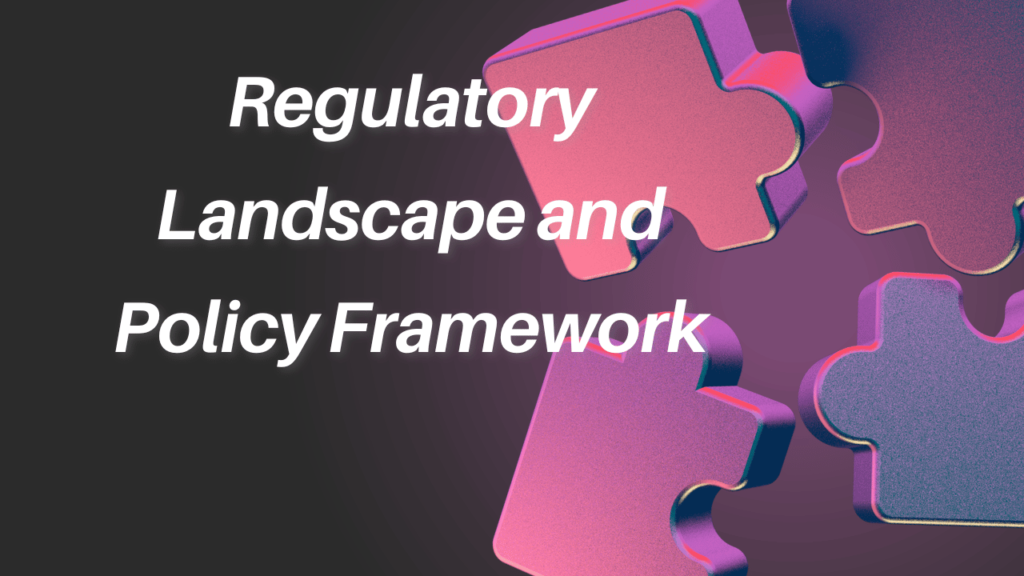With its unrivaled security, transparency, and efficiency, blockchain technology has become a revolutionary force in the ever-changing realm of digital finance. The technologically advanced and economically massive nation of India is on the brink of blockchain regulation and innovation. In order to reap the benefits of blockchain technology while mitigating its risks, the country is taking a cautiously optimistic approach to regulating it. Examining the present situation, obstacles, and potential of blockchain regulation in India, this article probes the complex terrain of blockchain technology in the country.
India aspires to be a digital innovation leader, and its exploration into blockchain technology is a reflection of that ambition. The distributed ledger technology known as blockchain is the foundation of digital currencies like Bitcoin. It records transactions that take place across various computers. This provides an extra layer of security and openness by making it impossible to change any recorded transaction in the past. Exploration of blockchain technology in India is expanding beyond financial transactions to encompass healthcare, supply chain management, and governance, demonstrating the technology’s adaptability and potential to revolutionize established systems.
Regulatory Landscape and Policy Framework

Reserve Bank of India’s Stance on Digital Currencies
When it comes to digital currency policy and the country’s overall financial regulatory framework, the Reserve Bank of India (RBI) is a major player. Despite initial skepticism, the RBI has now recognized blockchain’s promise. But it’s still wary of cryptocurrencies due to worries about security for investors, money laundering, and the overall health of the economy. The Reserve Bank of India is taking a measured approach to blockchain technology in order to safeguard the stability of the financial system.
Compliance with Anti-Money Laundering Rules
Blockchain and cryptocurrency companies in India are subject to strict regulatory oversight, especially in regards to anti-money laundering (AML) measures. The country has taken substantial steps in this direction. Financial Intelligence Unit (FIU) registration, Know Your Customer (KYC) standards, and suspicious transaction reporting are all necessities for crypto businesses. In line with international guidelines established by the Financial Action Task Force (FATF), this regulatory action showcases India’s dedication to curbing the illicit exploitation of digital assets.
KYC Processes in Indian Blockchain Companies
To guarantee the safety and openness of blockchain transactions, KYC procedures are essential. Strict Know Your Customer (KYC) processes are required of all blockchain businesses operating in India. The regulatory framework for digital assets is strengthened by this measure, which improves safety and trust within the blockchain ecosystem and aids in monitoring and preventing financial fraud.
Taxation Policies for Cryptocurrency Transactions
Cryptocurrency transaction taxes in India are still being worked out. Having well-defined tax policies is crucial for companies and investors as the government strives to incorporate digital assets into the traditional economy. The goal is to strike a balance between the expansion of the blockchain industry and the government’s fiscal obligations by creating a just taxation system that encourages innovation while simultaneously promoting tax law compliance.
Legal Challenges Faced by Blockchain Startups

Blockchain startups in India face a challenging regulatory environment with unclear policies and constantly changing regulations. Difficulties arise from a lack of digital currency-specific legislation, as well as from the need to comply with preexisting financial laws and data protection regulations. Regardless of these challenges, blockchain startups in India are well-positioned to flourish thanks to the government’s progressive attitude towards technology and innovation. More favorable policies are on the horizon.
Innovation and Compliance
India has a complex stance towards blockchain technology, with the dual objectives of encouraging innovation and guaranteeing compliance. While establishing a strong regulatory framework to mitigate risks, the country aims to take advantage of blockchain technology’s revolutionary potential across multiple industries.
Blockchain Startups
The combination of India’s huge pool of tech talent, its fast expanding digital economy, and encouraging government initiatives has made the country an ideal environment for blockchain startups. A number of states have established blockchain-focused incubation centers and introduced funding opportunities. In addition to propelling technical innovation, these initiatives establish India as a frontrunner in blockchain development on a global scale.
International Regulatory Standards
India understands it must bring its regulatory framework in line with global norms. It is clear that India wants to be a major player in the global blockchain regulation game, given its dedication to implementing FATF and other global bodies’ recommendations. This congruence promotes international collaboration and new ideas by making it possible for Indian blockchain businesses to function on a worldwide scale.
Digital Asset Security Measures
Regulators and participants in the blockchain ecosystem share a deep concern for the security of digital assets. Implementing advanced cybersecurity protocols and adopting best practices for digital custody solutions are just a few ways that India is striving to improve the security of digital assets. The security of digital transactions and the safety of investors are the primary goals of these initiatives.
Blockchain’s Role in Transforming Financial Services
By enhancing efficiency, transparency, and security, blockchain technology has the ability to revolutionize India’s financial services sector. Blockchain technology has the potential to revolutionize various aspects of the financial industry, including payment systems and financial inclusion.
Revolutionizing Payment Systems
There is a once in a lifetime chance for blockchain technology to completely alter India’s monetary infrastructure. Financial services can be made more accessible to the unbanked and underbanked populations through the use of blockchain technology, which allows for faster, more secure, and cost-effective transactions.
Improving Financial Inclusion
If India wants to increase access to financial services, blockchain technology is a game-changer. Financial services can be brought to rural and remote areas where traditional banking is limited by utilizing blockchain technology, which allows for secure and transparent transactions. Millions of Indians could gain access to savings accounts, insurance, and credit as a result of a more welcoming financial ecosystem.
Streamlining Cross-Border Transactions
The use of blockchain technology might improve the efficiency, security, and transparency of international financial transactions. The world’s biggest remittance market, India’s, stands to gain a great deal from this if it speeds up remittances and decreases transaction costs.
Promising Future of Blockchain in India
Government programs and private sector innovation are fueling the rapid growth of India’s blockchain ecosystem. Blockchain technology has a bright future in India thanks to the country’s tech-savvy population, expanding digital infrastructure, and the government’s cautious yet optimistic regulatory approach. Promoting innovation, guaranteeing security and compliance, and harnessing blockchain technology to propel digital transformation and economic growth are the primary goals of India’s ongoing regulatory framework refinement.
FAQs
What is the current legal status of cryptocurrencies in India?
With the government and RBI taking a cautious approach to regulating and using cryptocurrencies, they operate in a regulatory grey area in India.
Are blockchain companies in India required to comply with KYC and AML regulations?
It is true that blockchain businesses in India are required to register with the Financial Intelligence Unit (FIU) and report any suspicious activity in order to comply with anti-money laundering and know-your-customer regulations.
Can blockchain technology be used beyond financial services in India?
Absolutely! The versatility of blockchain technology is being demonstrated in its exploration of various sectors in India, such as healthcare, governance, and supply chain management.
How does India’s approach to blockchain regulation compare with global standards?
India is taking a measured but forward-thinking approach, following international norms like the Financial Action Task Force (FATF) guidelines to maintain a stable regulatory framework.
What are the main challenges facing blockchain adoption in India?
Implementing blockchain solutions is fraught with difficulties due to a lack of a trained workforce, privacy concerns, outdated technology, and unclear regulations.
Also Read: Indian Blockchain Startups: A Detailed Guide
Conclusion
The recent strides in Blockchain Regulation in India underscore the government’s commitment to embracing innovation while safeguarding its citizens and financial infrastructure. Despite the complexities inherent in regulating digital assets, India stands primed to harness blockchain’s transformative potential in enhancing security, transparency, and efficiency across various sectors. With its balanced regulatory framework and penchant for innovation, India is poised to emerge as a frontrunner in the worldwide blockchain landscape, seamlessly integrating digital assets into its burgeoning digital economy.

Timothy Jensen is an expert writer who specializes in the world of cryptocurrencies, including blockchain technology and Bitcoin. He has a passion for explaining complex topics in an easy-to-understand way. Timothy’s work aims to demystify the digital currency landscape for his readers.

